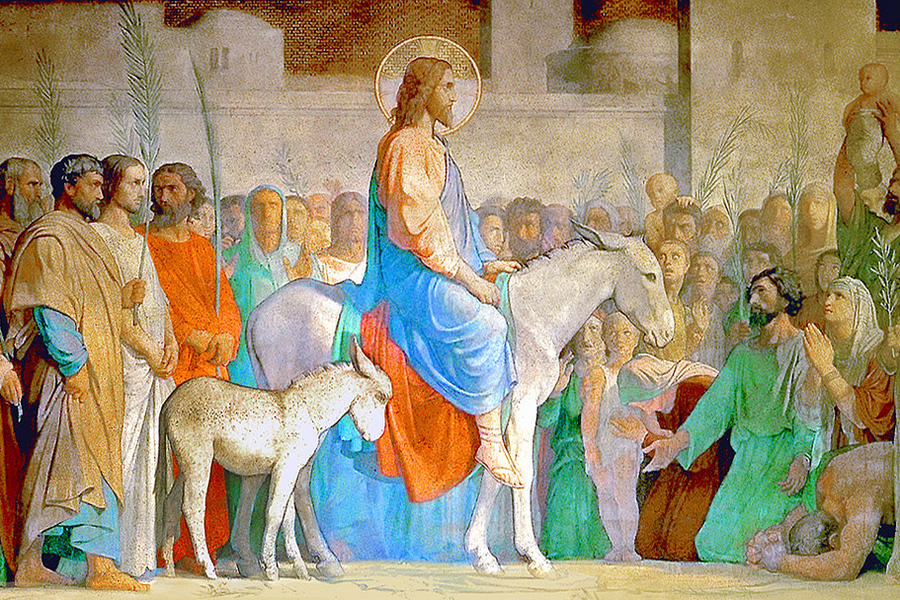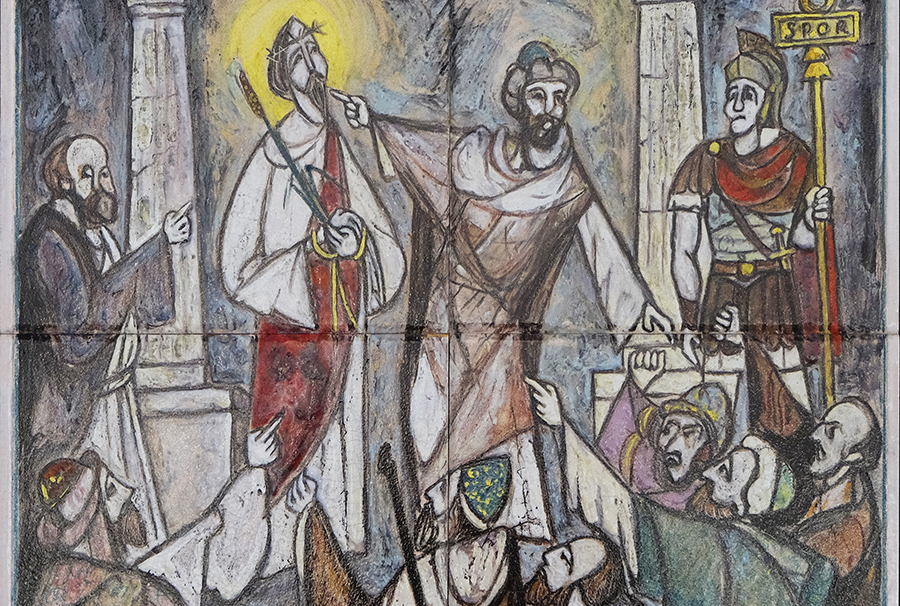
Jesus Christ prays for us and in us and is the object of our prayers
03-31-2024Weekly ReflectionFr. Leonard VillaGod could give no greater gift to men than to make his Word, through whom he created all things, their head and to join them to him as his members, so that the Word might be both Son of God and son of man, one God with the Father, and one man with all men. The result is that when we speak with God in prayer we do not separate the Son from him, and when the body of the Son prays it does not separate its head from itself: it is the one Savior of his body, our Lord Jesus Christ, the Son of God, who prays for us and in us and is himself the object of our prayers.
READ MORE
Greed is a Real Sin. The Tenth Commandment You shall not covet your neighbor’s goods.
03-24-2024Weekly ReflectionFr. Leonard F. VillaThere is a lot of talk on the streets and in the media about a thing called “corporate greed.” This greed is supposed to reside in entities called corporations that are somehow exploiting people to make a profit by valuing profit over people. The only problem with this construction is that a corporation is a “legal person,” but it is not a real person. And greed, being a sin, can only be committed by real persons; it cannot be committed by corporations. Because they are legal persons, corporations can break the law and be punished by the law, by fines or judgments, but they cannot sin. Sin requires human agency.
READ MORE
Hollywood and Christianity
03-17-2024Weekly ReflectionFr. Leonard F. VillaAny observer of films/TV programs coming from Hollywood today can see that Christianity and particularly Catholicism is often presented in a negative light. Why is that? Don Feder sought to answer that question in an essay years ago for Front Page Magazine. He asserted that Hollywood hates authentic Christians because the Faith is diametrically opposed to the worldview of a good many of the producers, actors, and directors who control Hollywood. What is that Hollywood worldview?
READ MORE
Why Did Jesus Pray?
03-10-2024Weekly ReflectionFr. Leonard F. VillaThe omnipotent God does not need to ask for anything because He has the power to effect whatever He wills. Jesus was fully God, so why does He pray? If well understood, the answer to this question will shed light on many of the highest mysteries of the Faith. Understanding the principle that will be discussed in this short article is the key to understanding some of the most obscure doctrines, such as divine providence, predestination, and free will. Here is the principle that must be understood before answering why Christ prayed. (St.)Thomas says: Divine providence disposes not only what effects shall take place, but also from what causes and in what order these effects shall proceed. To put it another way, God determines not only what happens but also how it happens.
READ MORE
The Battle Station, Station Days, Station Churches
03-03-2024Weekly ReflectionFr. Leonard F. VillaStation days were days of fasting in the early Christian Church, associated with a procession to certain prescribed churches in Rome, where the Mass and Vespers would be celebrated to mark important days of the liturgical year. Station days grew out of the early Christian practice of visiting the tombs of the martyrs and celebrating the Eucharist at those sites. By the fourth century, the practice of carrying out an itinerary to various churches of the city began to develop during the days of Lent. In those days it became a tradition for the pope to visit a church in each part of the city and celebrate Mass with the congregation.
READ MOREThere is a lot of talk on the streets and in the media about a thing called “corporate greed.” This greed is supposed to reside in entities called corporations that are somehow exploiting people to make a profit by valuing profit over people. The only problem with this construction is that a corporation is a “legal person,” but it is not a real person. And greed, being a sin, can only be committed by real persons; it cannot be committed by corporations. Because they are legal persons, corporations can break the law and be punished by the law, by fines or judgments, but they cannot sin. Sin requires human agency. Where corporations figure in this human agency, is in providing cover for the sins of individuals and/or being a means by which the sin is carried out.
READ MORE